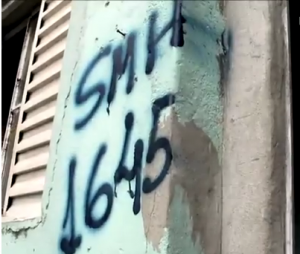
Who were London 2012 Olympic Games for? Were they for the athletes, the sponsors, the organizers, the global audience? Or were they for us? Our friend Gynna Millan (from UCL Development Planning Unit; in 2009 she presented a proposal for Repensar Bonpastor competition), together with a group of video enthusiasts, studied the impact of the “greatest event on earth” on public spaces, parks and local communities in London. The result is a video archive available on Whose Olympics? website, and a short documentary [watch trailer]. Two years later, we can ask again: who will Brasil’s 2014 World Cup be for? “The world cup is not ours“, write these architects from Río Grande do Sur, quoting Plato. These megaevents are transnational, as the protests they elicit. But the discourse of globalization, that transforms any local event in just another chapter of the same story, it’s not our own either. As we discussed in a recent OACU meeting in Barcelona (where, obviously, we have the precedent of 1992’s Olympics), we are much more interested in differences than in similarities. Anthropology has to keep an eye on correspondences and interrelation on the “macro” level, but it explores mainly the local articulations, what is unmeasurably “micro”: all that can’t be compared, all that is specific to each story, place, events, and to the impact of each phenomenon on every particular territory.
- “Whose world cup?“, campaign of the Comités populars da copa (Ancop), and video “Who wins with this game?”, on the Observatório das metrópoles website. “Is the world cup ours?“, Jessica D’Elias study about evictions in Itaquera (Sao Paulo), on Rachel Rolnik blog :: “A Caminho da Copa“, videodocumental, 2012.
- Luís Edoardo SOAREZ, brazilian anthropologist: “What I know and what I don’t know about the protests in Brazil“ [in italian in NapoliMonitor] :: Raúl Zibechi, Uruguayan journalist: “Why is the World Cup indignant“, LaVaca.com
- Big sport events and human rights violations in Brazil: article by Fabiola Ortiz on PeriodismoHumano.com, and interview with Sonia Fleury on Brasildefato, about the Dossier prepared by the Comités popular da copa [PDF] :: Article and videointerview with the economist and sociologist Carlos Vainer, about conflicts related with big events. Note the reference to the transformation of Barcelona.
- Mauro Castro COMA (2012) “From the Olympic dream to the Porto Maravilha project: ‘eventism’ as a catalyzer for regeneration”. Urbe, v.3, n.2. [PDF] :: Magrinyà and Maza (2005) “Tinglados de Bar-ce-lo-na: la incorporación del puerto”, Scripta Nova, 139 [link] :: and don’t miss this jewel: “Barcelona Brasil group: Bcn is our inspiration and Maragall my idol“.
- Letizia GIANNELLA, Brazilian geographer in Barcelona: Some thoughts about the protests (2013) on Manuel Delgado’s blog.
- An article by Nazaret Castro about the World Cup and the Olympic Games in Río, in Intensificant vides nervioses blog (very much related to ours)